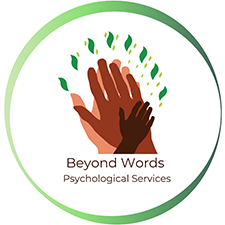How to Help a Friend Who is Experiencing Abuse
Whether you are an adult with a friend who is involved in an abusive romantic relationship, or a child or teen who has a friend who is experiencing abuse at the hands of their caregivers, here are four things you can do to offer support to the person in need.
SAFETY FIRST: First and foremost, a true friend puts the wellbeing of a friend ahead of the friendship itself. If your friend is in danger of being physically harmed, REPORT IT TO THE POLICE! Your kids need to know that they can come to you for help if they have a friend in trouble without getting lectured or interrogated, so make sure to share this concept with them very clearly: “I want you to know that if you ever have a friend who is in danger, you can come to me for help and together we’ll do what we can to help your friend. Their safety comes before anything else, so I will do my best not to get upset or angry about whatever you tell me.”
DON’T BADMOUTH: While your first instinct may be to point out how terrible the abusive person is, it is not likely to help the situation; in fact, it may even have the opposite effect of what you intended. Most children who are being abused still love their parents, and most adults still love their partner, despite the abuse. No one likes to have someone badmouth a person they love, no matter how hurtful that person may be, so they are likely to try to defend their abuser against your accusations or minimize the impact of the abuse. A better option is to talk about how amazing your friend is and build him or her up so they realize they deserve to be treated better. Instead of “Your dad is such a jerk!” try “Getting along with parents is so tough sometimes, even when you love them. It seems like your dad is really rough on your sometimes, I worry about you. Do you want to talk about it?”
BE NEUTRAL: If your friend minimizes the abuse or defends the abuser, try not to become confrontational. If you argue or lecture your friend, they are not likely to feel comfortable coming to you to share about their life anymore. After all, no one really enjoys to be told what to do, no matter what age they are. Try asking questions to clarify what they mean and how they feel, because your questions are likely to be a much more powerful way to help them realize the negative impact the abuse is having on their lives. Keep in mind that “why” questions often sound accusatory. Try saying something like “How you feel when your mom says that to you?” or “What’s it like to see him when he’s mad?”
STAY SUPPORTIVE: “Tough love” does not apply in these types of situations. You should not place conditions on your friendship or offer ultimatums. “You have to tell someone, it hurts me too much to see you like this” or “If you go back to him again, this friendship is done” are not helpful statements; the situation is not about you, it’s about your friend. Abusive relationships already produce a great deal of isolation for the victim, and it’s important that they have people to reach out to for support when they feel ready to report the abuse or leave the relationship. You can express your concern without forcing your friend to have to choose from options they are not yet ready for by using “I statements” – “I am worried about your safety” or “I am scared to think about what might happen to you.”
It’s a tough situation to be in, to see your friend hurting or in harm’s way. It’s important to follow your instincts when it comes to reporting abuse to the authorities – it’s not your job to investigate or find the facts, it’s your job to listen to your gut and report potential danger to keep your friend safe. If imminent harm isn’t a risk, it’s important to continue to keep the lines of communication open by being a supportive listener and committed friend. Check out the list of resources below for more information.
Link of the Week: REPORTING-CHILD-ABUSE / REPORTING-DOMESTIC-VIOLENCE
Next Week’s Blog: Tips for Adoptive Parents of Trauma-Reactive Kids
